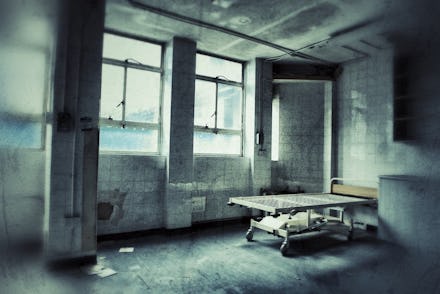A Small City in Belgium Is Helping the Mentally Ill in a Way the U.S. Needs to See

A small town in Belgium you've probably never heard of could hold the solution to America's problem with mass public shootings. Shootings in malls, cinemas and most horribly and regularly in schools. Mentally ill men — and it is almost always men — regularly murdering as many strangers as possible has become one of the realities of living in America today.
But it doesn't have to be like that. A small town in Belgium has quietly welcomed those affected by mental illness into their community peacefully and happily for 700 years. Geel has a remarkable approach to mental illness, one that was once copied all over Europe during the twentieth century. The town's residents are paid a stipend to bring people into their homes, treating them as one of the family in what is known as "the family care system," an article by Mike Jay for aeon magazine reports.
Image Credit: Wikimedia Commons.
Geel's tradition takes a strictly nonmedical approach to care. The town employs that old trick of basic human kindness to integrate the mentally ill into an otherwise conventional community. Back in 1821, Jean-Étienne Esquirol (his generation’s leading reformer of mental hospitals) visited Geel and "was astonished by the sight of hundreds of lunatics wandering freely and calmly around the town and countryside. He praised the tolerance of a system where 'the mad are elevated to the dignity of the sick,'" Jay writes. Funny that such a sight would still surprise us today.
Somehow our collective horror at each breaking news alert of a mass shooting fizzles out into shaken heads and numb acceptance. Thanks to the courage of people like Liza Long, mental illness has become a part of the conversation. Following the Newtown shooting, Long wrote the heartbreaking "I Am Adam Lanza's Mother." A mother of another violent and mentally ill American boy, she wrote of her fear that her son would commit a crime like Adam Lanza's fatal shooting of 20 children, six adult school staff and his mother.
Image Credit: AP. A woman comforts a young girl during a vigil for the victims of the Sandy Hook Shooting.
"This problem is too big for me to handle on my own. Sometimes there are no good options," Long wrote. America, in all its superpower greatness, doesn't know how to stop its mentally ill young men getting guns and shooting strangers. It is far, far more of a problem in the U.S. than any other developed nation in the world. How many school shootings have there been since Newtown? Seventy-four? Or 79? More than one a week? We aren't really sure.
Shooters now tend to increase their celebrity by posting video manifestos online before opening fire. They speak of their anger, their rejection from society, their desire for revenge, their hatred for the people around them. It is startling how frequently they turned the guns on their families before themselves. But in Geel, the mentally ill live alongside the "sane," in self-created families.
"One boarder recently celebrated 50 years in the Flemish town, arranging a surprise party at the family home. Friends and neighbors were joined by the mayor and a full brass band," Jay writes.
Meanwhile, back in the U.S., we still work under the assumption that people who can't conform to societal norms need to be further ostracized from the start.
"[W]hat his parents never did was the one thing that might have prevented him from buying a gun: have him committed to a psychiatric facility," mused a New York Times op-ed this month after Elliot Rodger shot seven people (including himself) in California.
"There are, after all, plenty of young, male, alienated loners — the now-standard description of mass shooters — but very few of them become killers. And you can't go around committing them all because a tiny handful might turn out to be killers."
Image Credit: AP. Two students cry during a memorial service for the victims killed by Elliot Rodger.
The partisan public conversation in America hinges around these talking points: access to guns and commitment to psychiatric facilities. The obvious failure of our society to make these young men feel connected to the human beings around them isn't really discussed. It is much easier for the media and public opinion to label the shooters as monsters, not people, to further distance them from the collective us and the social contract that should render these shootings impossible. More than half of all prison and state inmates now report mental health problems, according to federal figures.
But in the "Geel system," the mentally ill are integrated, not ostracized. The common collective terms for the mentally ill is "boarders," referring pragmatically to their social, not medical, condition, Jay writes. Host families aren't aware of medical labels, and boarders are only committed to hospital as a last resort, after reintegration is attempted.
It would be glib to suggest that Geel provides a perfect, utopian model for what America could and should be. But the violence perpetrated by the mentally ill in America leads to tragedy every week and heartbreak very day. And it's ever-increasing. Surely it's time to take the lead from a model of stability, compassion and reintegration where people aren't murdered en masse.